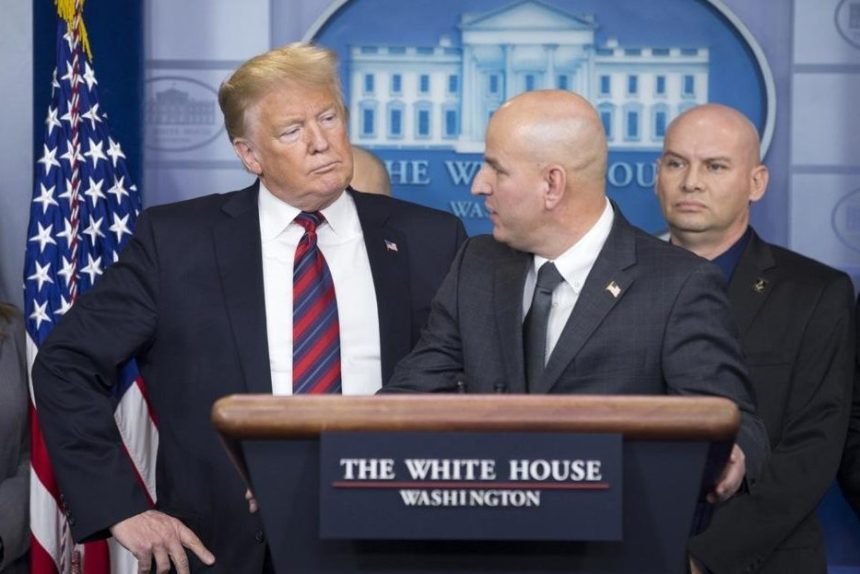U.S. President Donald Trump (L) listens to then National Border Patrol Council President Brandon Judd (C) deliver a statement on border security in the James Brady Press Briefing Room of the White House in Washington in January 2019. Now ambassador to Chile, Judd sparked controversy with his press conference. File Photo by Michael Reynolds/EPA
Nov. 25 (UPI) — A diplomatic controversy with the United States spilled into Chile’s presidential campaign after the new U.S. ambassador, Brandon Judd, used his first public appearance to level sharp criticism at President Gabriel Boric, prompting a formal protest from the government.
During his initial press conference, Judd directly accused the Chilean president of “damaging the bilateral relationship” and undermining investment and strategic cooperation with the United States.
He said he was “disappointed” by Boric’s criticism of President Donald Trump‘s environmental policy and argued that such remarks “harm the Chilean people.”
He also made an explicit reference to the election, saying that “with governments that are ideologically aligned, it will be easier to work,” a comment widely interpreted as support for far-right candidate José Antonio Kast.
The government of Gabriel Boric responded with a formal note of protest.
Foreign Minister Alberto van Klaveren called the ambassador’s remarks “inappropriate and unfortunate” and said his comments on the political process “amount to interference in our country’s internal affairs,” a message delivered to the U.S. Embassy’s chargé d’affaires.
Regarding the issue, left-wing candidate Jeannette Jara said, “Chile doesn’t need any granddaddy looking after it, and that goes for the Americans, as well as any other country,” Emol reported.
She added that her government would maintain good relations with everyone, but expects “Chile’s sovereignty to be respected, as well.”
Right-wing candidate Kast questioned Judd’s intervention, but focused his criticism on the Chilean government.
“Every time our president leaves Chile, he creates a conflict with some foreign country,” he said. He then directed a message at the administration.
“Spend your time solving problems with other governments instead of sending protest notes,” Kast said.
In the hours that followed, the issue moved into Congress.
Opposition lawmakers urged Boric to receive the new ambassador’s credentials before the end of the month, arguing that the ceremony signals seriousness, stability and a normalization of the bilateral relationship to investors and partners.
The president of the Communist Party, Lautaro Carmona, accused the ambassador of interfering in the election by “indicating that one candidate would be better than another for the United States.”
At the center of the dispute are Chile’s regulatory rules.
Judd has argued that Chilean bureaucracy is delaying U.S. projects ready to invest, linking the political climate to the business environment and the need for clear timelines.
That narrative has seeped into the campaign, where credentials, protocol and signals to investors have become points of dispute and tools for political positioning before the electorate.
Chile’s presidential runoff will be held Dec. 14. Polls show Kast with a wide lead.











